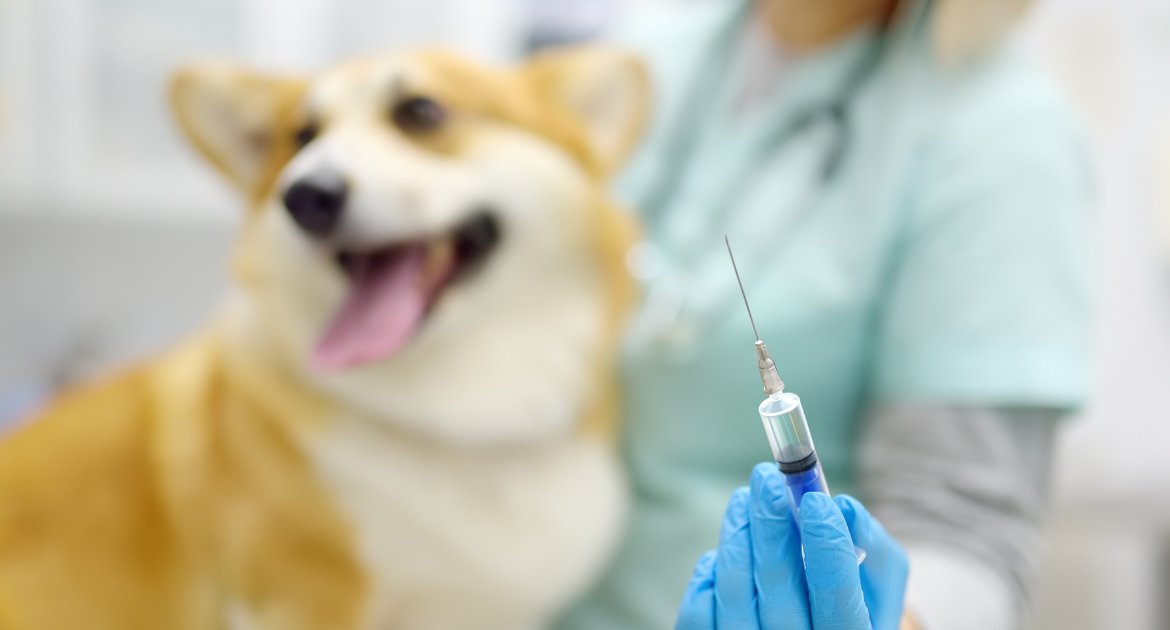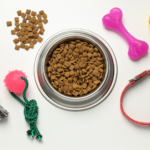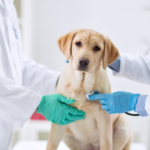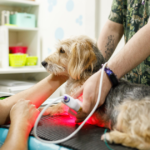Every pet parent loves their pet more than themselves. As soon as they start living with them, every pet becomes special to all family members. If I talk about a dog’s parents, every dog parent loves their dog like their own child and never wants to see their dog hurt. Being a dog parent is truly a blessing and a lovely feeling, where you experience endless joy, happiness, and countless blessed moments, as dogs understand our emotions and feelings more than human beings. So having a dog is indeed a wonderful experience. But on the other hand, every dog parent constantly worries about their dog’s health since dogs have shorter lifespans and sometimes fall victim to dangerous, deadly viruses that can harm them badly. Every dog parent faces that moment of dread when they hear about any disease in their dog. So, to be the best pet parent, you should know everything about taking care of your pet.
In this article, we are going to inform you about the deadly and dangerous canine parvovirus (parvo), which is a big threat to dog parent, especially when they bring a new puppy into their home. This is an infectious virus that immediately affects newborn puppies until they are 6 months old.
If you are planning to bring a dog or puppy into your home, or if you have recently become a pet parent, then it is very important to know everything about parvo in dogs, its signs, symptoms, prevention, and treatment. This is the last thing any dog parent would want to hear about the diagnosis of parvovirus. This virus is extremely dangerous and harmful for newborn puppies, so you should keep your pet away from anything that may expose them to infection. And if you are unsure about your pet’s health, then you can reach out to House Call Vet Services in Abbotsford for the best medical care for your pet’s health.
What is Parvovirus?
Parvovirus is very common among dogs. It is also one of the most dangerous and deadly viruses in puppies and young dogs, as it directly attacks their stomach and intestines. As there is no cure for parvovirus, your vet can only offer supportive care over the course to your pet. But there is good news too, that parvovirus is preventable. Yes, you heard it right that you can save your dog from this dangerous virus by giving the arvo vaccine, which is a core and highly recommended vaccine by every vet for all newborn puppies. The vaccination process is a complete course that begins at 2-4 weeks and continues until 16 weeks of age. Adult dogs, on the other hand, require booster doses every 1-3 years to maintain immunity.
Parvovirus mainly affects unvaccinated puppies between the ages of 6 to 20 weeks. It can also affect adult dogs who have not received their parvo vaccination or have missed booster shots. However, vaccination doesn’t mean your dog is 100% safe, as canine parvovirus is one of the most contagious viruses. Your pet can still be infected if they miss booster shots for a long time or come in contact with an infected puppy, person, animal, or contaminated object. Parvovirus in dogs directly affects the small intestine, destroys cells, disrupts the gut barrier, and impairs absorption, whereas, on the other hand, parvo in puppies may also affect the bone marrow and lymphopoietic tissues, and in some cases, the heart. Additionally, if you are not sure about your dog’s health, signs, and symptoms, and want to understand more about their health factors, you can consider a Dog DNA test Canada, which helps provide insights and supports more accurate decisions for your dog’s health.
Cause of Parvovirus in Dogs
Some dog parents believe that their dogs live indoors and don’t go outside, and only go out to pee or poop. But let me make it clear here that parvovirus is such a dangerous virus that it can survive indoors for up to a month, and outdoors, it can live in soil or grass for years. Parvovirus is a highly contagious virus and is mainly caused by exposure to the feces of infected animals. This means that even when your dog goes out to pee or poop, they can still come in contact with this deadly and dangerous virus. So, you need to be very careful while taking your dog outside. Dogs infected with canine parvovirus usually don’t show any symptoms for 3-7 days, but they can still be infectious with this deadly virus during that time.
Signs and Symptoms of parvovirus in dogs
When it comes to the signs of parvo in puppies and adult dogs, many cases have shown that dogs may already be contagious with this dangerous virus before owners realize that their paw friend is sick. A dog with parvovirus is a very sick dog, and he/she start shedding the virus within 4 to 5 days of exposure. The sooner you get to know the early signs of this deadly virus, the sooner you can get your dog to the vet. Since the survival rate for infected dogs is very low due to this dangerous and deadly virus.
Anytime you notice your puppy is unwell, immediately search for a pet emergency hospital near you and take your pet to the vet for immediate treatment before it gets serious. And if you are a pet parent and you don’t want to risk your furry friend’s life so you should know these early signs and symptoms of parvovirus in dogs.
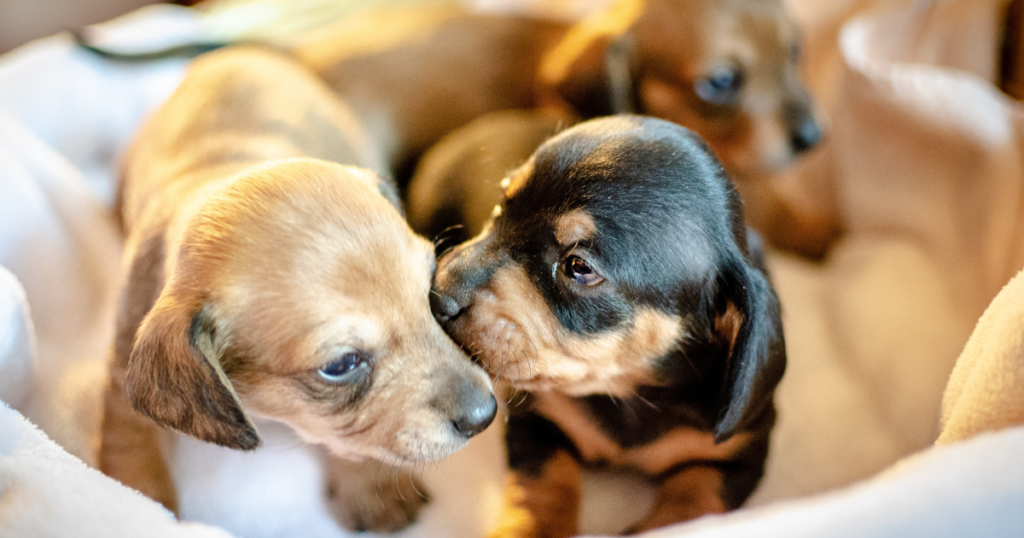
Here are some early signs and symptoms of parvovirus in dogs:
Lethargy- This is usually the very first sign. An infected dog with parvo experiences unexpected tiredness or lethargy, like they don’t have energy to play or to go outside. You may see your dog is sitting silently and not wanting to play, or to do any type of exercise like going out, or even lose interest in interacting with their owners.
Lack of appetite- After losing energy, your dog may also lose their appetite as the virus directly attacks the small intestine. Your dog may lose interest in food, even ignoring their favorite meals.
Fever- After skipping meals, the dog will spike a sudden high fever. A dog suffers from the fever for 2-3 days when they gets infected with the parvovirus. Here, you need to get serious and take your pet to a vet immediately. If you are noticing that your pet is not playing much, feeling tired, and starting to skip meals so then this is the stage where you should get serious because after this stage, the virus becomes deadly and can’t be treated easily. So, to not risk your pet’s life, when you notice some unusual activity, immediately consult with a vet for your pet so that you can save his or her life before any danger.
As the infection worsens, your dog may experience:
Vomiting- This is the stage where you start losing your pet because this is the time when your dog’s body is totally infected with this virus, and they start vomiting continuously, which leads to dehydration, weight loss, weakness, and severe abdominal pain.
Diarrhea- In the last stage, the infected dog with parvovirus suffers from diarrhea and which often a day becomes bloody diarrhea within a day, which is considered the last stage of this virus. At this stage, survival chances drop drastically to only 10%. Out of 10 dogs, only 1 dog survives, and chances are even lower in puppies.
The worst thing for any pet parent is to see their dog in pain and in a dangerous condition. Whereas when your dog is infected with this deadly parvovirus than here no matter how good the treatment you are providing to your dog, there is a very low chance of survival for any dog from this dangerous virus. All of these symptoms are very serious in themselves and could be a sign of any serious illness, and after knowing these symptoms, you need to be very careful related to any unusual activity your pet does; don’t ignore things that may turn for the worse. If you suspect any unusual activity by your pet, immediately consult with a vet. If you want to be the best paw parent, you should take precautions so that your dog doesn’t get infected with this deadly virus. And you should know how to keep your dog safe from this virus, whereas we are sharing some tips which you can follow so that your dog can be prevented from this deadly parvo virus.
Tips To Prevent Your Dog From Parvovirus Are:
- The very first step you should follow to make sure that your puppy is properly vaccinated with the parvo vaccine. So, for this visit your nearest vet hospital and get your puppy vaccinated.
- Also, keep your dog’s exposure limited to other puppies or unvaccinated dogs, or wait until your dog’s vaccination course is completed.
- Since there is no cure for parvovirus, and because it can survive for years in the environment so never leave your pet in dirty or unknown areas. Remember this virus can be found anywhere, including shoes, clothes, carpets, floors, soil, food bowls, and grass.
- If you go to such places where you come into contact with other dogs so make sure to wash your hands and change clothes immediately after returning to your home and before handling your pet in your hands.
- When you visit the hospital for vet checkups, always carry your dog in your arms because it might be possible that there is some other pet infected with this dangerous virus, and your pet may come in contact with any contaminated object.
These are the different tips you should keep in mind while taking your dog for an outing or while coming home from outside. If you keep yourself a little alert, then maybe you can be successful in giving your dog a better quality of life.

